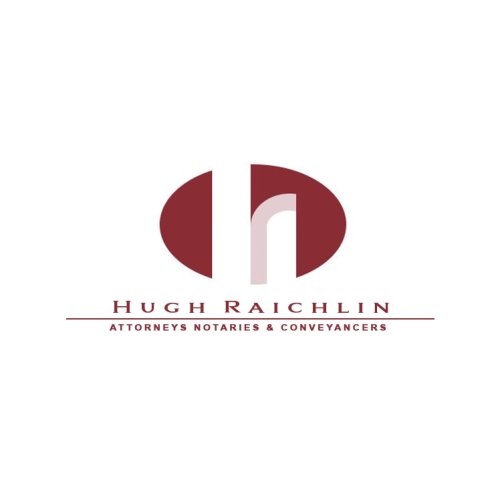Best Inheritance Law Lawyers in Johannesburg
Share your needs with us, get contacted by law firms.
Free. Takes 2 min.
List of the best lawyers in Johannesburg, South Africa
1. About Inheritance Law in Johannesburg, South Africa
Inheritance law in Johannesburg is governed by South Africa’s national statutes and administered locally through the Master of the High Court and the High Court in Gauteng. Wills, intestate succession, and the administration of estates determine how a deceased person’s assets are distributed to beneficiaries. In Johannesburg, many estate matters are handled by the Gauteng Division of the High Court and overseen by the Master of the High Court for the province.
The core statutes include the Wills Act 7 of 1953, the Administration of Estates Act 66 of 1965, and the Intestate Succession Act 81 of 1987. These acts set out formalities for wills, the process of probate, and rules for distributing estates without a will. Attorneys and solicitors in Johannesburg routinely guide families through these steps to ensure lawful and compliant administration.
In practice, an estate matters expert in Johannesburg will help with drafting or updating a will, appointing an executor, filing probate with the Master of the High Court, identifying beneficiaries, settling debts, and distributing assets to heirs. The Master of the High Court ensures compliance with estate administration rules and advertises creditors’ claims before final distribution.
Source: Department of Justice and Constitutional Development explains estate administration processes and the role of the Master of the High Court in South Africa. Source: justice.gov.za.
2. Why You May Need a Lawyer
These are concrete, real-world scenarios in Johannesburg where you would benefit from Inheritance Law legal advice. Each scenario reflects common complexities seen in Gauteng estates.
- A will is contested by a spouse who believes the testator intended a greater share. A Johannesburg attorney can assess validity, potential forced heirship issues, and pursue a fair resolution through the High Court.
- You are appointed as executor but face creditor claims, contested debts, or missing assets. A lawyer helps file probate, manage creditor notices, and ensure accurate liquidations.
- The estate has foreign assets or properties in another province. An attorney can coordinate cross-border probate, transfers, and tax implications with SARS.
- A surviving parent or child challenges an intestate distribution in Gauteng. A solicitor can determine statutory shares and assist with court applications for rightful entitlement.
- There is suspected mismanagement or self-dealing by the executor. A lawyer can seek accountability, review accounts, and pursue remedies in court.
- You need to protect a dependent’s rights, such as a child or disabled family member. A legal counsel can pursue maintenance, trusts, or life interest provisions within the will or under the Intestate Succession Act.
3. Local Laws Overview
Johannesburg relies on national legislation administered locally. The following statutes are central to Inheritance Law in Gauteng:
- Wills Act 7 of 1953 - Sets the formal requirements for creating valid wills, including writing, signature, and witnesses. The Act applies nationwide, with local interpretation by the Master of the High Court in Johannesburg.
- Administration of Estates Act 66 of 1965 - Governs probate, appointment of executors, estate inventories, creditors' claims, and distribution accounts. The Master of the High Court supervises estate administration in Gauteng.
- Intestate Succession Act 81 of 1987 - Provides rules for distributing an estate when no valid will exists. It identifies eligible heirs, their shares, and the order of priority among spouses and children.
Recent changes and trends in Johannesburg emphasize proper estate administration, family protection, and compliance with tax and debt obligations. For official guidance, see the Department of Justice and Constitutional Development and SARS resources below.
Department of Justice and Constitutional Development provides general information on wills, estates, and the Master of the High Court's responsibilities. SARS outlines taxes affecting deceased estates, including filing requirements for estate tax and capital gains tax where applicable.
4. Frequently Asked Questions
What is the difference between a will and an estate plan?
A will records asset distribution after death. An estate plan includes wills, trusts, guardianships, and power of attorney to manage assets during life and after death.
How do I probate an estate in Johannesburg?
Begin by locating the will or confirming intestacy, then file probate with the Master of the High Court in Gauteng. A lawyer helps prepare the petition, assets list, and notices to creditors.
When should I appoint an executor for my will?
Appoint an executor in your will, preferably someone experienced and trustworthy. Consider an alternative if the primary choice cannot serve due to distance or capacity.
Where do I start if there is no will?
Start with the Intestate Succession Act rules. The Master of the High Court guides you through applicable shares and the appointment of an administrator for the estate.
Why do I need a lawyer for inheritance disputes?
Disputes involve complex statutory rights, potential gains for heirs, and court procedures. A lawyer helps navigate the process and protects legitimate claims.
Can an heir challenge a will in Gauteng?
Yes. Grounds include lack of testamentary capacity or undue influence. A lawyer can file appeals and represent you before the High Court.
Should I appoint a professional executor?
Professional executors offer experience with tax filings and creditor claims; they can reduce delays but come with fees. The court can appoint a professional if needed.
Do I need to pay estate tax or SARS duties?
Deceased estates may face taxes such as capital gains tax or income tax on estate income. SARS requires timely filings and accurate accounting of assets and liabilities.
Is a notarial will required for validity?
A will can be a notarial, but most valid wills are statutory and witnessed. Notarial wills are more common for certain formalities, depending on the ceremony and location.
How long does estate administration typically take in Gauteng?
Simple estates may progress in 6 to 12 months; complex estates can take longer due to debt resolution and asset tracing. Timelines vary with creditor claims and disputes.
What documents are needed to lodge a will at the Master of the High Court in Johannesburg?
Common documents include the death certificate, the will, the executor's details, asset and liability lists, and identity documents of beneficiaries. A lawyer can compile a complete packet.
How much does it cost to hire an inheritance lawyer in Johannesburg?
Costs vary by matter complexity, time, and region. Many lawyers bill hourly or on a capped fee for straightforward matters; request a written estimate first.
What is the difference between an attorney and an advocate in South Africa?
An attorney handles general legal matters and client relationships. An advocate represents clients in court and is usually consulted for litigation matters.
5. Additional Resources
Use these official resources for authoritative guidance on inheritance law and related procedures.
- Department of Justice and Constitutional Development (DOJ) - justice.gov.za. Provides official information on wills, estates, and the role of the Master of the High Court in South Africa.
- South African Revenue Service (SARS) - sars.gov.za. Details tax implications for deceased estates, including filing requirements and tax computations.
- Law Society of South Africa (LSSA) - lssa.org.za. Provides professional directories and guidance on lawyer qualifications and ethics.
6. Next Steps
- Define your estate issue clearly and gather all documents you already have, including death certificates, wills, and any prior probate documents. Do this within 1 week to avoid delays.
- Identify Johannesburg-based lawyers who specialize in estate law by checking the Law Society of South Africa directory or trusted local referrals. Allow 1-2 weeks for initial outreach and shortlist.
- Request an initial consultation to discuss your case, fees, and expected timeline. Prepare questions about costs, potential outcomes, and required documents. Schedule within 2 weeks of shortlisting.
- During consultations, ask for a written estimate or fee agreement and ask about progress updates and anticipated milestones. Expect a 30-60 minute meeting per session.
- Engage the chosen attorney or solicitor and sign a formal mandate. Ensure you receive a scope of work, estimated costs, and a timetable for steps like probate and creditor notices.
- Provide all requested documents to your legal counsel and confirm who will handle applications to the Master of the High Court for probate or administration. Start immediately if a will exists.
- Monitor the process and request regular progress reports. Respond promptly to any requests for information to avoid unnecessary delays. Expect updates every 4-6 weeks depending on complexity.
Lawzana helps you find the best lawyers and law firms in Johannesburg through a curated and pre-screened list of qualified legal professionals. Our platform offers rankings and detailed profiles of attorneys and law firms, allowing you to compare based on practice areas, including Inheritance Law, experience, and client feedback.
Each profile includes a description of the firm's areas of practice, client reviews, team members and partners, year of establishment, spoken languages, office locations, contact information, social media presence, and any published articles or resources. Most firms on our platform speak English and are experienced in both local and international legal matters.
Get a quote from top-rated law firms in Johannesburg, South Africa — quickly, securely, and without unnecessary hassle.
Disclaimer:
The information provided on this page is for general informational purposes only and does not constitute legal advice. While we strive to ensure the accuracy and relevance of the content, legal information may change over time, and interpretations of the law can vary. You should always consult with a qualified legal professional for advice specific to your situation.
We disclaim all liability for actions taken or not taken based on the content of this page. If you believe any information is incorrect or outdated, please contact us, and we will review and update it where appropriate.
















